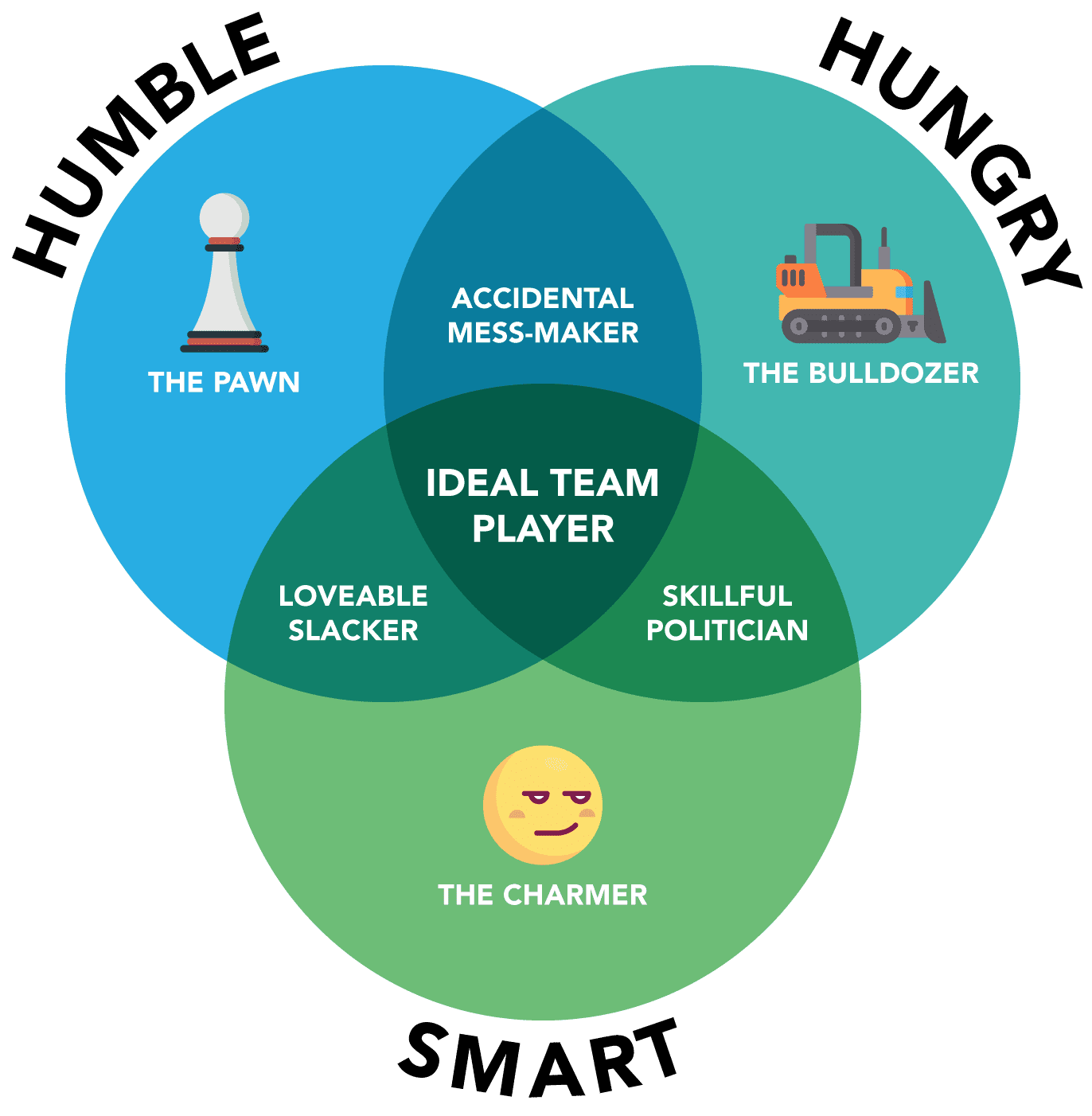Summary: The Ideal Team Player
How to Spot the Ideal Team Player
Patrick Lencioni is founder and president of the Table Group, a firm dedicated to making work more fulfilling by making organizations healthier.
With enough time, patience and attention from a good manager, almost anyone can learn to become a team player. I believe that.
Having said that, some people are better at teamwork than others. These are the kind of people who add immediate value in a team environment and require much less coaching and management to contribute in a meaningful way.
So, there are two obvious questions. What do these people look like? And how do we find them? As it turns out, they have three qualities or virtues in common: they are humble, hungry and smart.

HUMBLE Ideal team players are humble. They lack excessive ego or concerns about status. Humble people are quick to point out the contributions of others and slow to seek attention for their own. They share credit, emphasize team over self and define success collectively rather than individually.
HUNGRY Ideal team players are hungry. They are always looking for more. More things to do. More to learn. More responsibility to take on. Hungry people almost never have to be pushed by a manager to work harder, because they are self-motivated and diligent. They are constantly thinking about the next step and the next opportunity
SMART Ideal team players are smart. They have common sense about people. Smart people tend to know what is happening in a group situation and how to deal with others in the most effective way. They have good judgment and intuition around the subtleties of group dynamics and the impact of their words and actions.
The Three Virtues
The three virtues seem quite simple, but require a bit of explanation.
HUMBLE
The first and most important virtue of an ideal team player is humility. A humble employee is someone who is more concerned with the success of the team than with getting credit for his or her contributions. People who lack humility in a significant way, the ones who demand a disproportionate amount of attention, are dangerous for a team. Having said that, humble team players are not afraid to honestly acknowledge the skills and talents that they bring to the team, though never in a proud or boastful way.
HUNGRY
The next virtue of an ideal team player is hunger, the desire to work hard and do whatever is necessary to help the team succeed. Hungry employees almost never have to be pushed by a manager to work harder because they are self-motivated and diligent. They volunteer to fill gaps, take on more responsibilities and are eagerly looking around corners for new ways to contribute to the team.
SMART
The final virtue of a team player is not about being intelligent, but rather about being wise in how to deal with people. Smart employees understand the nuances of team dynamics, and know how their words and actions impact others. Their good judgment and intuition help them deal with others in the most effective way
As simple as these three concepts may be, the key to all this is the unique combination of all three virtues, which make a person an ideal team player. Unfortunately, when even one of these attributes is lacking in a significant way, challenges can arise.
For instance, a humble and hungry employee who is not smart about people may accomplish a great deal but will often leave a trail of interpersonal destruction behind them. And a person who is smart and humble but lacking in hunger will frustrate team members by doing only what is required and having to be constantly asked to do more. Finally, a team member who is hungry and smart but truly lacking in humility, can have a devastating impact on a team. This type knows how to present himself or herself as a well-intentioned colleague, all the while looking out for his or her own needs. By the time team members figure this out, people have been manipulated and scarred.
How do you go about hiring ideal team players? It’s mostly about knowing what to look for, and probing in non-traditional ways. And what about employees who already work on the team and lack one or more of the virtues? A big part of helping them improve is making sure they understand the concepts and know where they fall short. We’ve found that merely introducing this simple model to teams and allowing them to self-assess goes a long way toward improvement.
The impact of ensuring that members of a team value and demonstrate humility, hunger and people smarts cannot be overstated. Most teams that struggle are not lacking in knowledge or competence as much as they are unable to access that knowledge and competence because of dysfunctional behaviors. A team full of people who are humble, hungry and smart will overcome those dysfunctions quickly and easily, allowing them to get more done in less time and with far fewer distractions. My hope is that this approach will help leaders hire, recognize and cultivate ideal team players in their organizations.
